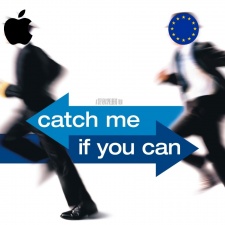Apple has unveiled new rules for the App Store and its iOS ecosystem in response to the European Union’s Digital Markets Act. The newly introduced regulations are aimed at creating a “fairer business environment” by identifying large online platforms known as ‘gatekeepers’. According to the European Commission, gatekeepers such as Apple are required to allow third-party interoperability, provide access to user data, and offer advertising transparency, among other criteria.
Examples of changes that gatekeepers must adhere to include treating third-party services and products on their platform equally and allowing users to link to businesses outside of the platform. Furthermore, gatekeepers are prohibited from tracking users outside of their core platform for targeted advertising without proper consent.
As a result of these changes, Apple is opening up to alternative payment systems and third-party marketplaces. However, it continues to uphold its fees and control over the iOS ecosystem, which was evident in its dispute with Epic Games in the U.S.
For publishers, Apple’s new rules mean they have the option to continue with the existing App Store deal or switch to new business terms, which would include a ‘Core Technology Fee’. Some key changes include lower revenue shares for publishers using alternative payment methods, as well as charges for third-party stores that exceed a specified number of annual installs.
The new proposals are poised to have a significant impact on the economics of mobile and the entire marketing process. The Core Technology fee, for instance, would apply to new installs and updates, ultimately leading to a yearly fee per user.
As a result, publishers are exploring alternative platforms, and Unity’s Runtime fee has emerged as a point of contention in light of the new rules.
Apple’s move to impose fees on free downloads and introduce charges for users who want to uninstall pre-installed software could have far-reaching implications for app developers and publishers. This, combined with other market constraints, has led many to consider utilizing their own web shops and payment providers.
It remains to be seen how the EU regulators will respond to these new rules. Regardless, it’s evident that Apple is determined to maintain control over its ecosystem and enforce rules that favor its interests, leaving developers and publishers facing an increasingly hostile market environment.


